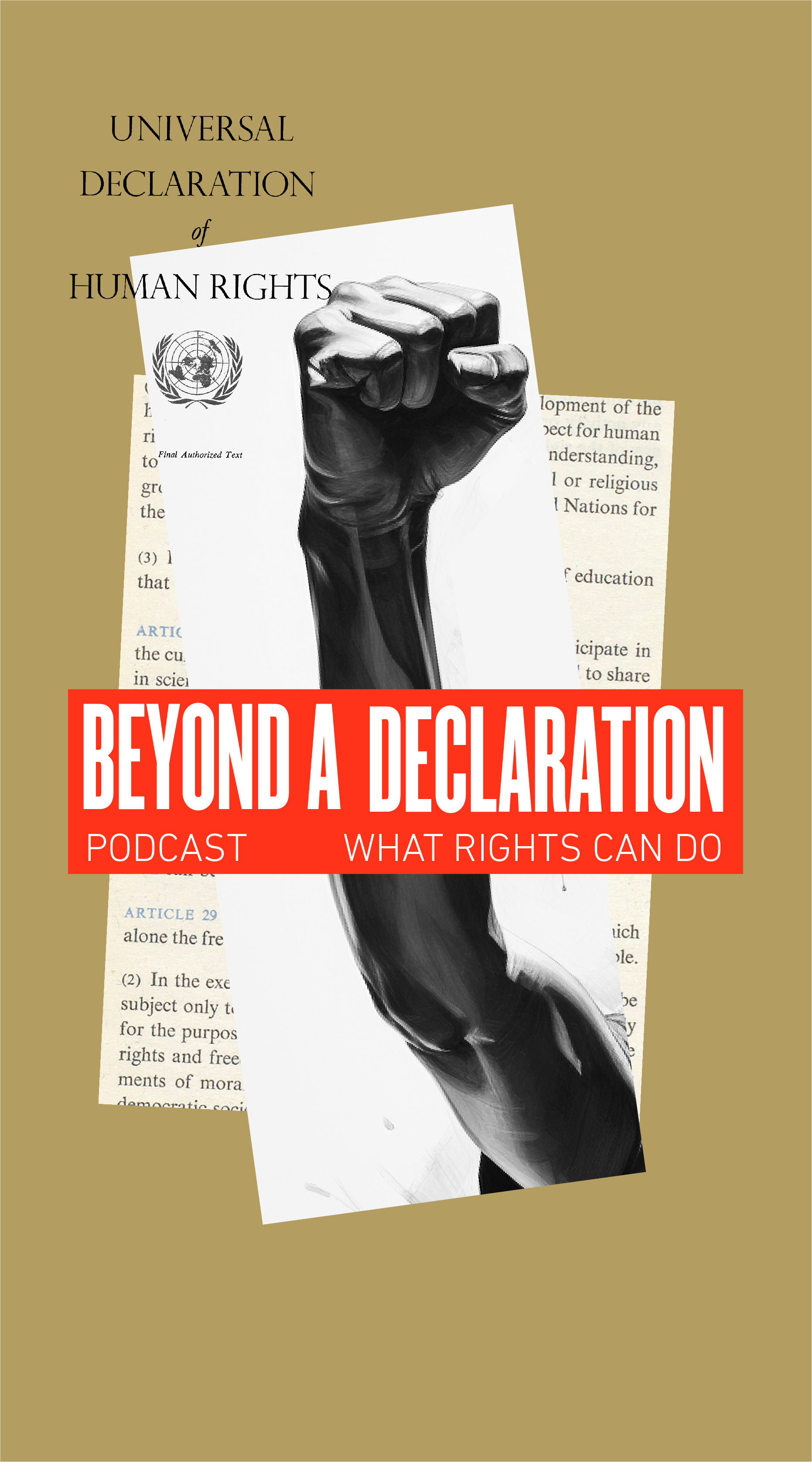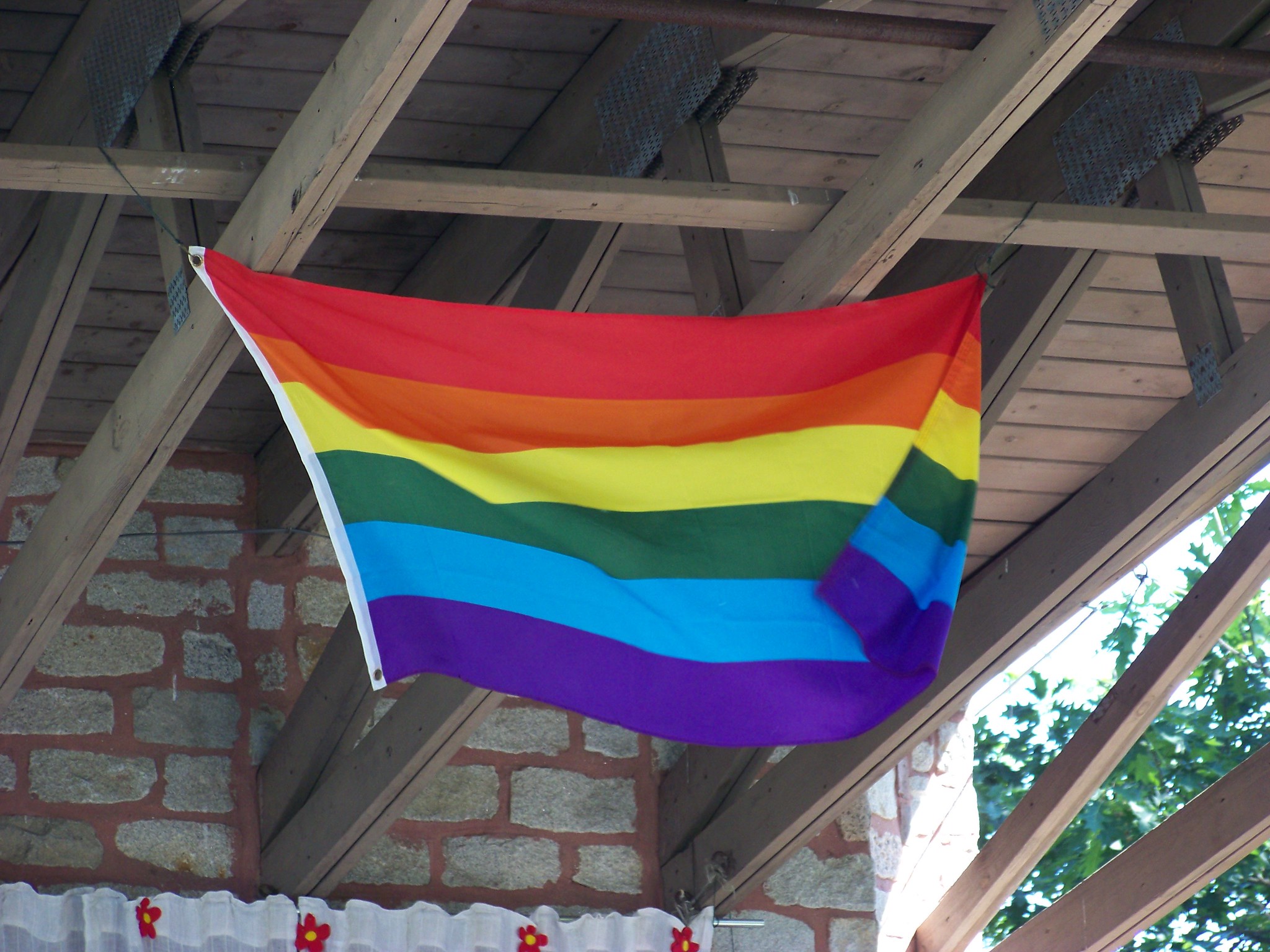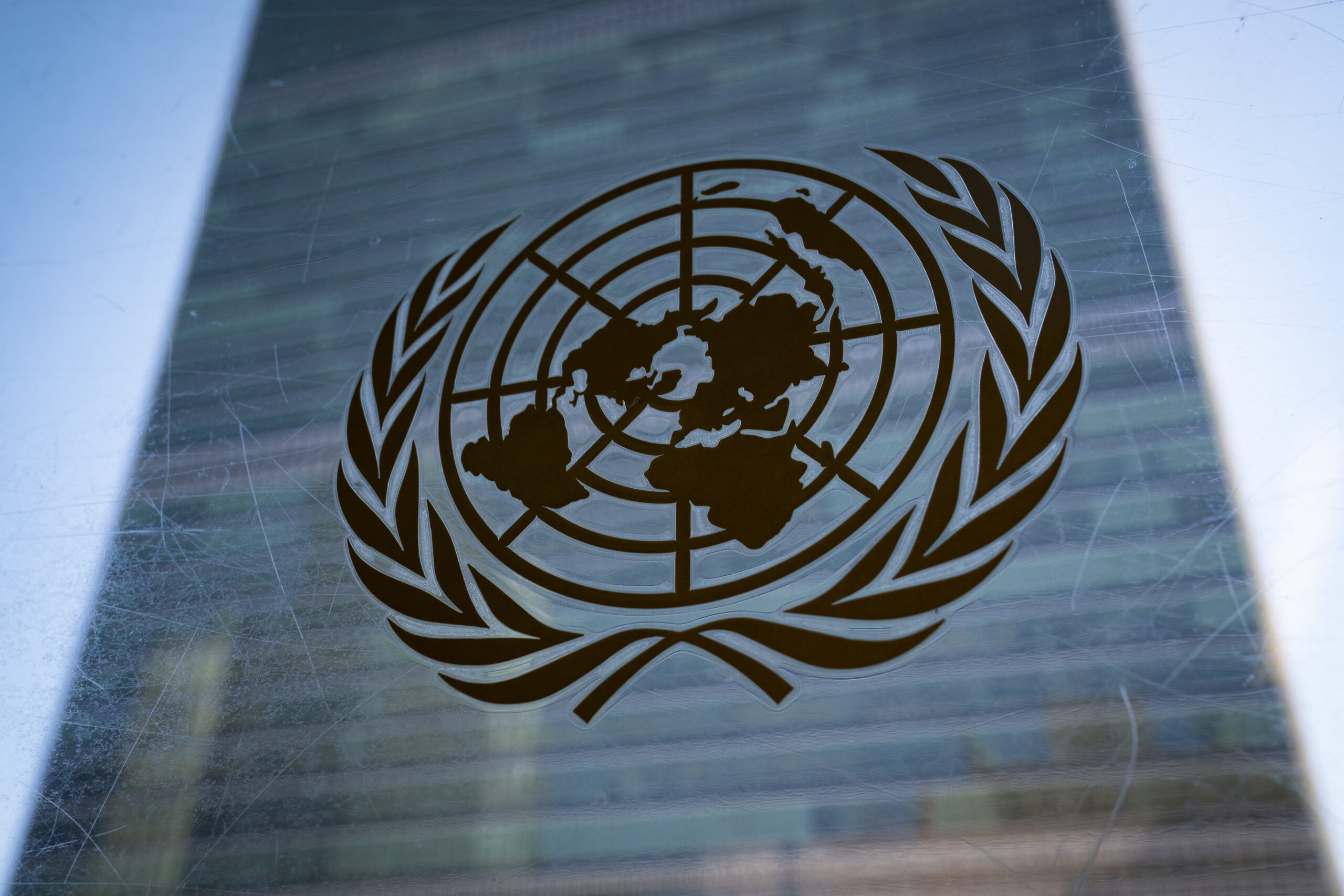Nationwide Organization of Visually Impaired Empowered Ladies Inc. (NOVEL) is a unified team of women with varying degrees of visual impairment, aims to unite everyone, especially women with sight disability to be self–empowered, intellectually equipped and economically independent.
Since its foundation, RLS NYC has partnered with the women’s rights organization MADRE to work with women and girls from around the globe for justice and equality. NOVEL is based in Philippines and is part of MADRE’s VIVA Girls Initiative to Encourage Girls and Young Women Leaders.
LOVE in Action:
Empowering Women and Girls with Disabilities to Win Equality and Freedom
The struggle for equality and freedom is an ongoing journey. Our ancestors fought hard for these two values over hundreds of years, and their sacrifices — measured in sweat, blood, and lives lost and given in many acts of courage and wars — paid off 75 years ago with the adoption of the Universal Declaration of Human Rights (UDHR). The UDHR is a powerful document that inspires us to continue working toward ensuring that all people can enjoy freedom, equality, and a life of dignity. Through the UDHR, laws, conventions, and organizations have been established to protect the rights of marginalized groups of people.
CEDAW and the Philippines
The year 1979 was a groundbreaking moment for women’s rights with the adoption of the United Nations Convention on the Elimination of All Forms of Discrimination Against Women (CEDAW), a guiding framework for governments and other stakeholders that has helped us achieve greater gender equality and facilitate the empowerment of women and girls, including those with disabilities. Although there was no specific mention of women and girls with disabilities in CEDAW, the convention provides blanket rights promotion and protection for all women and girls, including those with disabilities.
In 1991, the CEDAW Committee released General Recommendation No.18 on Disabled Women. It “recommends that States parties provide information on disabled women in their periodic reports, and on measures taken to deal with their particular situation, including special measures to ensure that they have equal access to education and employment, health services and social security, and to ensure that they can participate in all areas of social and cultural life.”
There was also a strong emphasis on the particular issues and support required by women with disabilities in General Recommendation No. 24 on CEDAW Article 12: Women and Health. Specifically, it supports the provision of special attention to the health needs and rights of women belonging to vulnerable and disadvantaged groups, such as women with disabilities. It also recommends “appropriate measures to ensure the access of older women to health services that address the handicaps and disabilities associated with ageing”. Finally, it recommends appropriate measures be taken “to ensure that health services are sensitive to the needs of women with disabilities and are respectful of their human rights and dignity.”
As of February 2023, 189 out of 193 UN member states ratified the Convention and 114 ratified the optional protoco.[1] In the Philippines, the government signed CEDAW on July 15, 1980 and on August 5, 1981 it was ratified. Thirty years after its adoption of CEDAW, the government also enacted the Republic Act 9710 of 2010, also known as the Magna Carta for Women (MCW). This piece of legislation is a local interpretation of the CEDAW. MCW mentions women with disabilities as one of the marginalized sectors. Section 30 of MCW requires the government to support community-based social protection schemes and the development of social protection programs for women with disabilities. However, this section has not yet been implemented.
The UN Convention on the Rights of Persons With Disabilities
In 2006, the promotion, protection, and fulfilment of the rights of women and girls with disabilities was strengthened with the adoption of the United Nations Convention on the Rights of Persons with Disabilities (UNCRPD). This marked an international paradigm shift from philanthropic and medicalized approaches to a rights-based approach to disability that recognizes persons with disabilities as part of human diversity.
Both philanthropic and medicalized approaches look at a person’s impairment as the problem and cause for their inability to participate in society. The charity approach views people with disabilities in a tragic perspective as objects of pity, dependent on others’ generosity and voluntary donations. The medical approach, on the other hand, sees people with disabilities as “broken or defective” and “sick” individuals that need to be fixed and cured to be productive members of society. Helping people with disabilities is reduced to medical interventions and therapy so their impairment will be cured or they won’t appear to have one. Usually in this approach, the lives and decision-making ability of people with disabilities are taken over by medical professionals. This approach must not be confused with the right to access healthcare and medical services. These perspectives do not support the empowerment of people with disabilities or promote and ensure their meaningful participation and inclusion in all aspects of life. Oftentimes these approaches deny people with disabilities their right to live a life of dignity and independence in the community.
In contrast, the social and particularly rights-based approach that is anchored in the UNCRPD identifies the problem as the presence of attitudinal and environmental barriers in society which must be eliminated. Article 3 (General Principles) of UNCRPD underscores what should be done to ensure that people with disabilities live a life of dignity and independence on an equal basis with others. A rights-based approach to disability based on UNCRPD recognizes the intersecting identities of women and girls and how they face multiple forms of discrimination. UNCRPD has a very strong emphasis on gender and it ensures that gender perspectives are always present in all policies, programs, and services and are specific and inclusive of people with disabilities. The leadership and participation of women and girls in all public and private spaces is also promoted to address the multiple forms of discrimination that we face.
NOVEL’s Fight for Human Rights
Despite this progress, however, women with disabilities continue to face discrimination because of their intersecting identities, such as being a woman, having an impairment, and living in poverty.
In the Philippines, the Nationwide Organization of Visually-Impaired Empowered Ladies (NOVEL) is an organization comprising women with varying degrees of visual impairment who are promoting the rights of their fellow women and girls with disabilities. Its values and actions are anchored in the UDHR, UNCEDAW, UNCRPD, and other international and local human rights instruments. NOVEL was formed to promote the full inclusion and meaningful participation of women, girls, and gender-diverse people with disabilities in all areas of life. As part of NOVEL, we felt that there was a strong need to increase our visibility as participants and leaders in all discussions and decision-making processes inside and outside the family and home.
The organization is working in solidarity with cross-disability and women’s movements for gender and disability-inclusive development. Through training, we have come to understand our human rights and fundamental freedom, and this has become the foundation of our advocacy as rights promoters.
NOVEL firmly upholds the belief that human rights are intrinsically intertwined with the concept of intersectionality. We embrace intersectionality as a fundamental framework through which we examine the diverse identities individuals possess, along with their corresponding power dynamics. Such understanding enables us to acknowledge and address the inclusive and exclusive forces present in all facets of life. Intersectionality serves as our guiding principle, informing our approach to various dimensions of our work. It influences our integration of gender and disability perspectives into broader social issues, our selection of project partners, our consideration of accessibility requirements and support systems for our team and collaborators, our collaboration with other coalitions, as well as the manner in which we carry out our activities. Recognizing the human rights conventions as our overarching foundation, we consistently ensure the application of a multi-treaty approach in alignment with our values, projects, and endeavours.
Although UDHR, UNCEDAW, and UNCRPD have been enacted, women and girls with disabilities continue to experience inequality from different angles. NOVEL’s work — such as facilitating the empowerment of their fellow women and girls with disabilities, building coalitions with cross-disability and women’s movements, and promoting gender and disability-inclusive development — is vital because it seeks to ensure that all women and girls, regardless of their disabilities, can enjoy the same freedom and equality as everyone else. By quantifying the number of people affected, consulting them on their accessibility and support requirements, and involving the whole community in the entire process, they can ensure that everyone can experience what others take for granted.
LOVE: Let Our Voices Echo
At present, NOVEL has embarked on a project in the Philippines titled: “Let Our Voices Echo (LOVE): Shaping the Inclusive Future of Women and Girls with Disabilities in Laoang, Northern Samar.” Laoang is one of the municipalities in Northern Samar which is part of the Philippines’ major island, Visayas. As of 2022, Laoang had a population of 65,650, of whom 693 were persons with disabilities,. Of those with disabilities, 313 were women and 380 were men, and this includes 82 who were children.
For this work, we are joining forces with the women’s rights organization MADRE and their Viva Girls initiative. LOVE aims to build empowered women and girls with disabilities who will become loud and proud promoters of their rights. They will engage multi-sectoral stakeholders in facilitating the active participation and inclusion of women and girls with disabilities in all programs and activities. They will fight to eliminate attitudinal and institutional barriers and to overcome information, communication, and technology (ICT) and physical/environmental limits that impede meaningful participation. Their hope is to develop Laoang as a model municipality for accessibility and gender and disability inclusion.
NOVEL diligently practices community-based inclusive development, which adheres to ten principles. Eight of these come from the UNCRPD’s general principles, while the other two are empowerment/self-advocacy and sustainability. Working collaboratively with project partners, as in the case of Project LOVE, NOVEL strives for a partnership where projects avoid being solely attributed to the organization. Their aim is to foster community ownership and ensure its longevity for the foreseeable future. Close collaboration with project partners involves thorough consultation and active involvement at every stage. The primary focus of their efforts is to amplify the participation of young women and girls with disabilities, seeking continuous improvement in their inclusion throughout all processes and nurturing their self-expression, knowledge, talents, and aspirations. In addition, NOVEL maintains a steadfast commitment to sustaining support for women, girls, their families, and schools. To this end, the organization actively engages various governmental agencies and non-governmental organizations, each assuming specific roles.
Making Human Rights a Reality
The fight for equality and freedom is far from over, especially for those who face discrimination because of their gender and disabilities. However, there are those who are paving the way for empowered women with disabilities to have their voices heard. The Nationwide Organization of Visually-Impaired Empowered Ladies (NOVEL) is one such group, leading the charge in the Philippines. The LOVE project aims to build empowered women and girls with disabilities who will become loud and proud promoters of their rights. Through their work, they are creating a world where everyone — regardless of their abilities or gender — can enjoy equality and freedom. Let us continue to fight for the rights of all people, so that we may truly live in a world where equality and freedom reign supreme.
The true impact and role of UDHR today is much more than we realize. It has a domino effect, binding us together towards the authentic realization of human rights and fundamental freedoms, one step at a time, through progressive realization.
So, do you still savor equality and freedom today?
Yes! It tastes good, but it tastes even sweeter when others can enjoy it, too!
Cheers to the 75th year of UDHR!
[1] United States, Sudan, and Palau are signatories but have not ratified it. Iran, Somalia, Nieue, Holy See, and Tonga haven not signed it.
Top photo: AP Photo/Bullit Marquez



